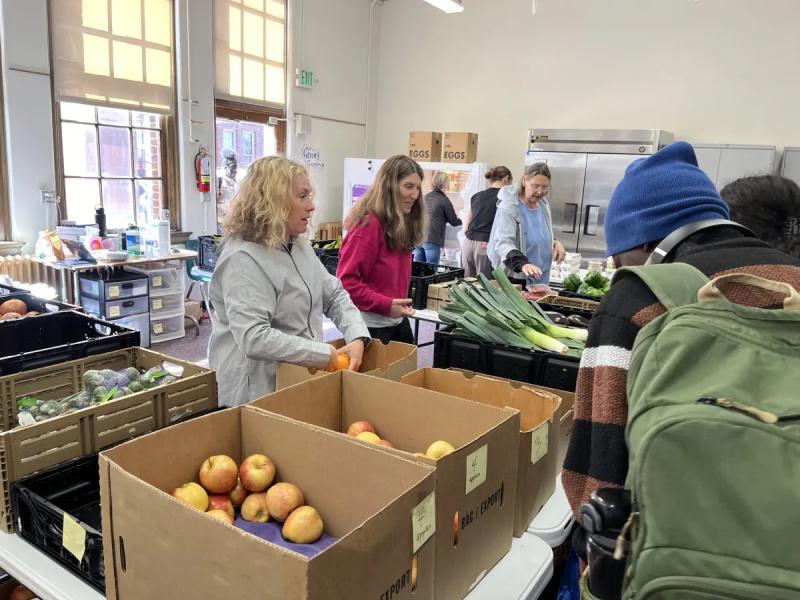Denver's Hunger Crisis: The Importance Of Food Pantry Assistance

Hunger has become an increasingly significant issue in Denver in recent years. Despite being a thriving metropolitan city, many individuals and families struggle to make ends meet. A sizeable section of the populace is in need of dietary help. The local food pantries play a crucial role in combating hunger and providing a lifeline for those in need. These organizations are not only helping to fill the gap for families experiencing food insecurity but are also working to ensure that no one in Denver goes without.
The Hunger Crisis In Denver
Denver, like many major cities, is home to a diverse population. Unfortunately, for a significant number of residents, access to consistent, nutritious food is far from guaranteed. According to recent data, over 12% of people in Denver are facing food insecurity, meaning they don't have reliable access to enough affordable and nutritious food. Food insecurity has several causes, including the loss of a job, growing housing expenses, and personal or medical emergencies that make it difficult for a person or family to obtain food regularly.
Food insecurity in Denver does not just affect a single group—it impacts children, seniors, and working families alike. The consequences are far-reaching: poor nutrition affects a person's health, productivity, and quality of life. Children from families experiencing food insecurity are especially at risk because poor nutrition can impair their growth and cognitive development, which can impact their capacity to learn and succeed in school.
The Role Of Food Pantries In Denver
Food pantries have emerged as critical institutions for addressing the hunger crisis. These local organizations provide food to individuals and families who cannot afford enough to eat. By providing wholesome meals to those in greatest need, they play a critical part in the battle against hunger.
One of the key benefits of food pantries is that they are community-based, which means they are more accessible to local residents. They are often located in neighborhoods with high levels of food insecurity, making it easier for those in need to get help quickly. These pantries are staffed by compassionate volunteers and supported by donations from individuals, businesses, and charitable organizations.
Food pantries typically operate with a model that allows individuals to choose food items based on their dietary preferences and needs. Because customers are treated with respect and decency, this lessens the stigma that is frequently attached to receiving food aid. The Denver food pantry goal is not just to provide food but to empower individuals and families by offering a sense of autonomy over the items they receive.
Bridging The Gap
Food pantries do more than just serve meals; they are part of a bigger initiative to address the underlying causes of hunger. Many pantries partner with local health and social services organizations to connect clients with additional resources, such as housing support, healthcare services, and job training programs. This holistic approach helps to address the underlying issues that contribute to food insecurity, offering individuals and families a path to long-term stability.
Food pantries also serve as advocates for systemic change. By raising awareness about the scope of food insecurity, these organizations help to shift public perception and mobilize action on a larger scale. Whether through fundraising efforts, educational programs, or policy advocacy, food pantries work tirelessly to reduce hunger and poverty in Denver.
The Impact Of Community Support
The community's generosity is a major factor in Denver food banks' success. Without donations of food, funds, and time, these organizations would not be able to sustain their efforts. Support from local individuals, businesses, and institutions is essential to ensure that food pantries can continue to serve their communities.
Volunteer opportunities abound at these pantries, and many individuals find it fulfilling to give back by helping to sort food, pack boxes, or assist clients directly. Donating non-perishable items or financial resources also plays a crucial role in keeping pantries stocked and operational. It is through this collective community effort that Denver's food pantries are able to make a real difference in the lives of thousands of people each year.
Conclusion
The hunger crisis in Denver is a complex issue, but food pantries provide a vital solution to this problem. These groups are helping to close the gap for people who are food insecure by providing food aid, community support, and access to other resources. However, the work is far from over. To guarantee that all locals have consistent access to the wholesome food they require to live long, healthy lives, activism, and community involvement must continue. Through collective effort, Denver can work toward a future where hunger is no longer a crisis but a thing of the past.
Post Your Ad Here
Comments